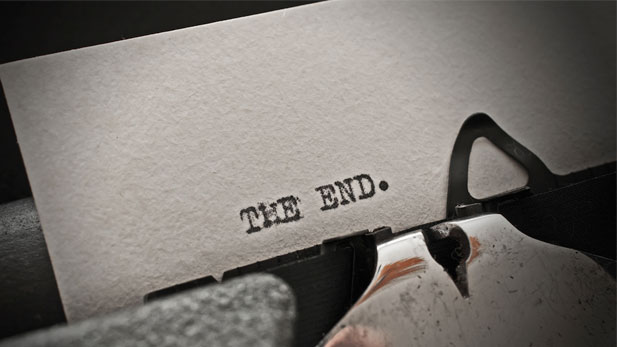Cover Letter
How to Write the Closing Sentences of a Cover Letter
When applying for a job, a cover letter can often be the make or break of an employment opportunity, this is how to write the closing sentences.

Closing Paragraph/Sentance(s)
Conclusion
In order to wrap up the cover letter it is important to include a short paragraph or a few sentences that summarize how one wishes to proceed with the application. It is a good idea to also use this sentence to convey within a few words why one is "perfect" for the job. This is the last sentence the hiring manager will read and will most likely influence their perception of the applicant due to the recency effect. It is also suggested to mention any attached documents to avoid confusion in case they are lost as well as provide various means of contact for the manager to choose from.
Summary
- Summarise in one sentence why one is “perfect” for the job
- Mention any attached documents
- Provide various means of contact
Signature
In order to sign the letter it is recommended to end the letter with a respectful closing statement. There are many possible forms however “sincerely” or “kind regards” are the most common options. Underneath the closing statement ones name should be typed out completely and if the cover letter is being sent as a paper copy and not through an online application process, signing at the bottom is a crucial step.
Summary
- End the letter with a respectful statement such as “sincerely” or “kind regards”
- One can sign beneath the statement if the letter is being submitted as a paper copy
- End the letter with ones name in printed form
Other useful links:
- How to write a cover/motivation letter
- How to write the salutation of a cover letter
- How to write the informational paragraphs of a cover letter
Cover Letter
Mistakes to Avoid on a Cover / Motivation letter
When applying for a job, a cover letter can often be the make or break of an employment opportunity, these are some common mistakes to avoid.

A cover letter is often the first point of contact between an employer and the applicant, it therefore provides an excellent chance to "sell yourself" provided your letter gives off a good first impression. Although many common mistakes on cover letters seem minor, if the job has other applicants, mistakes on your cover letter and resume could cause for a preference of other candidates by the employer.
Top 5 cover letter mistakes
-
Using the wrong format - Your cover letter should follow the standard format that employers are expecting. Avoid trying to differ yourself from other applicants in this way, especially when applying to a conservative industry. Also remember to use size size 12 for text and make sure to use a standard font such as Times New Roman.
How to write a cover/motivation letter
-
Using a wrong or outdated greeting - A respectful greeting is more important than it seems. A too generic greeting such as "to whom it may concern" especially when the name of the appropriate addressee has been given in the listing, can be interpreted as sign of carelessness.
How to write the salutation of a cover letter
-
Spelling and grammar mistakes -A cover letter is a way to display your communication skills to the employer therefore correct spelling and grammar is essential. Remember to also avoid contractions and abbreviations.
10 most common spelling errors to avoid
-
Sending a general letter - The number one mistake made when sending out a cover letter, is taking a generic approach. Avoid sending the same letter to a number of job openings as this is not the purpose of a cover letter, it should describe why you are the ideal candidate for that specific job at that specific company. It is an essential step to mention the job you are applying for and it is also good to include where you found the listing.
How to write the informational paragraphs of a cover letter
-
Too long or too short letters - There is no ideal length for a cover letter, it should be long enough for you to express fully the information that you wish to convey (while adhering to the guidelines), but short enough for it to be brief, concise and to the point. Sending a letter that is too short can give off the impression that you have a low amount of interest in the job, as well as the employer making assumptions about your work ethic. A letter that is too long on the other hand, can burden the reader and the likelihood skipping the letter becomes much greater.
Cover Letter
How to Write the Informational Paragraphs of a Cover Letter
When applying for a job, a cover letter can often be the make or break of an employment opportunity, this is how to write the informational paragraphs.

Informational paragraphs
Opening sentence(s)
In a cover letter it is essential to convey the information as briefly as possible to the reader but still retain a formal and fluid writing style. The first sentence of the informational paragraphs in the cover letter should concern itself with the specific job one is applying for and how one found the job listing. These one or two first sentences should be short concise and to the point.
e.g. - I am writing to you in order to submit my application for the job opening of entry level marketing that was advertised on findmeajob.com on the 19th of august.
Summary
- Let the hiring manager know what job you are applying to
- Also include where you found the job listing
- Keep the opening sentance short concise and to the point
Body paragraphs
When writing ones body paragraphs it is important that one keeps the information short and focused and that the letter does not suffer from being either too short or too long. A typical cover letter should have 1 or 2 body paragraphs that summarize the qualifications one has for the listed job, gives relevant, concrete examples of work experience, and discusses why one would like to be part of the company. It should be noted however that the hiring manager has also received ones resume, avoid listing, or writing about all qualifications, it is important to pick the most relevant and recent examples. It is recommended to avoid explaining in detail what changes one plans to make at the company or other specific details that may come across as arrogant especially if the position is not managerial.
Summary
- Summarise only the most recent and relevant qualifications for the listed job
- Include concrete examples of relevant past work
- Avoid lists or including too much information listed on your resume
- Avoid proposing changes to a company at this early stage especially if the position you are is applying for is not managerial
Other useful links:
- How to write a cover/motivation letter
- How to write the salutation of a cover letter
- How to write the closing paragraph/sentece(s) of a cover letter
Cover Letter
How to Write the Salutation of a Cover Letter
When applying for a job, a cover letter can often be the make or break of an employment opportunity, this is how to write the salutation.

Salutation
When writing a cover letter one should address the hiring manager of the company one is seeking a job at in a formal manner, using the correct title. If one does not know the name of the hiring manager it is possible to address the letter to the job position itself (Dear hiring manager) before resorting to a more general approach if not enough information is known (To whom it may concern). This however, is not preferred by many managers as it comes off as less formal and could display a lack of research into the company.
Summary
- Address the person directly if possible with the correct title
- Use a job position if the name is not available
- Avoid the use of "To whom it may concern"
Other useful links:
- How to write a cover/motivation letter
- How to write the informational paragraphs of a cover letter
- How to write the closing paragraph/sentece(s) of a cover letter
-
Blog12 years ago
Sorority Recruitment
-
Resume and CV13 years ago
Letters of recommendation / references
-
Resume and CV13 years ago
Resume or Curriculum Vitae (CV) ?
-

 Resume and CV13 years ago
Resume and CV13 years agoWhich Resume Format Should I Choose?
-
Resume and CV13 years ago
Basic rules for writing your resume
-

 Cover Letter13 years ago
Cover Letter13 years agoThe cover / motivation letter
-
Cover Letter13 years ago
Europass CV
-
Sample Resumes, Examples and Templates13 years ago
Reference Example





